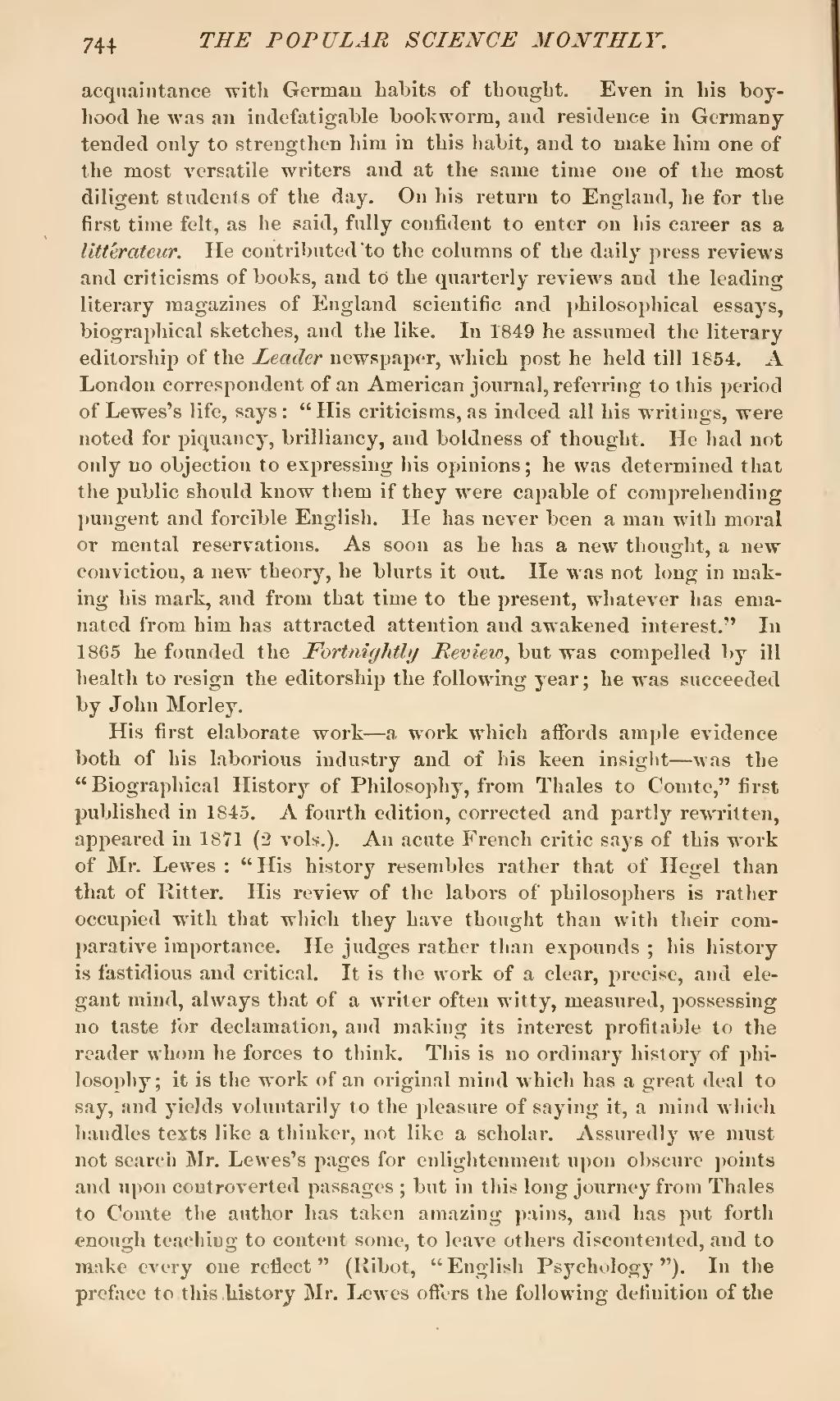acquaintance with German habits of thought. Even in his boyhood he was an indefatigable bookworm, and residence in Germany tended only to strengthen him in this habit, and to make him one of the most versatile writers and at the same time one of the most diligent students of the day. On his return to England, he for the first time felt, as he said, fully confident to enter on his career as a littérateur. He contributed 'to the columns of the daily press reviews and criticisms of books, and to the quarterly reviews and the leading literary magazines of England scientific and philosophical essays, biographical sketches, and the like. In 1849 he assumed the literary editorship of the Leader newspaper, which post he held till 1854. A London correspondent of an American journal, referring to this period of Lewes's life, says: "His criticisms, as indeed all his writings, were noted for piquancy, brilliancy, and boldness of thought. He had not only no objection to expressing his opinions; he was determined that the public should know them if they were capable of comprehending pungent and forcible English. He has never been a man with moral or mental reservations. As soon as he has a new thought, a new conviction, a new theory, he blurts it out. He was not long in making his mark, and from that time to the present, whatever has emanated from him has attracted attention and awakened interest." In 1865 he founded the Fortnightly Review, but was compelled by ill health to resign the editorship the following year; he was succeeded by John Morley.
His first elaborate work—a work which affords ample evidence both of his laborious industry and of his keen insight—was the "Biographical History of Philosophy, from Thales to Comte," first published in 1845. A fourth edition, corrected and partly rewritten, appeared in 1871 (2 vols.). An acute French critic says of this work of Mr. Lewes: "His history resembles rather that of Hegel than that of Ritter. His review of the labors of philosophers is rather occupied with that which they have thought than with their comparative importance. He judges rather than expounds; his history is fastidious and critical. It is the work of a clear, precise, and elegant mind, always that of a writer often witty, measured, possessing no taste for declamation, and making its interest profitable to the reader whom he forces to think. This is no ordinary history of philosophy; it is the work of an original mind which has a great deal to say, and yields voluntarily to the pleasure of saying it, a mind which handles texts like a thinker, not like a scholar. Assuredly we must not search Mr. Lewes's pages for enlightenment upon obscure points and upon controverted passages; but in this long journey from Thales to Comte the author has taken amazing pains, and has put forth enough teaching to content some, to leave others discontented, and to make every one reflect" (Ribot, "English Psychology"). In the preface to this history Mr. Lewes offers the following definition of the
